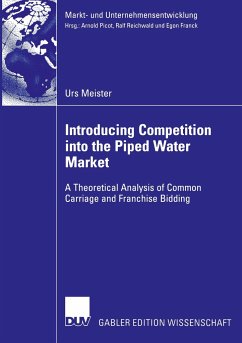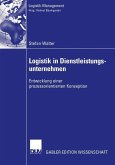Water scarcity is not exclusively a concern of the poor. Developed countries are increasingly facing problems related to higher per capita consumption and pollution so that enhancing the efficiency of the water supply ranks among the main global challenges of the future. The necessary improvements are not only a matter of technical progress but also of institutional design.
Using tools of modern industrial economics, Urs Meister examines the effects of privatisation and competition in the piped water industry. Considering the two main approaches for competition in an industry with natural monopoly character, common carriage (interconnection) and franchise bidding (auctions), he analyses costs, retail prices and investment. Such analysis shows that competition may be a valuable opportunity to improve the efficiency of water supply.
Using tools of modern industrial economics, Urs Meister examines the effects of privatisation and competition in the piped water industry. Considering the two main approaches for competition in an industry with natural monopoly character, common carriage (interconnection) and franchise bidding (auctions), he analyses costs, retail prices and investment. Such analysis shows that competition may be a valuable opportunity to improve the efficiency of water supply.








